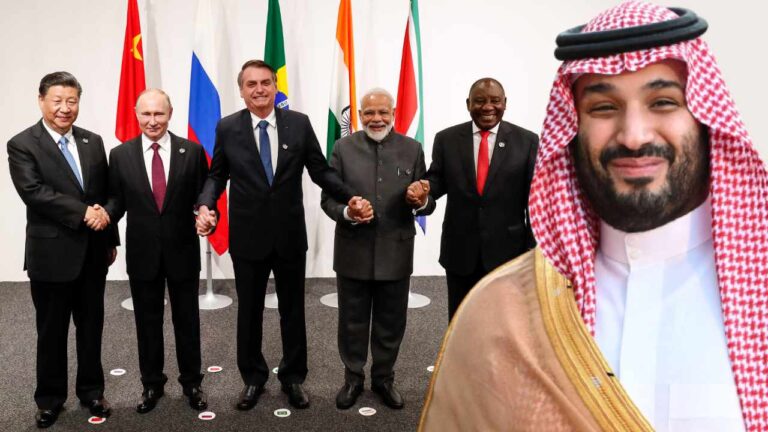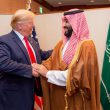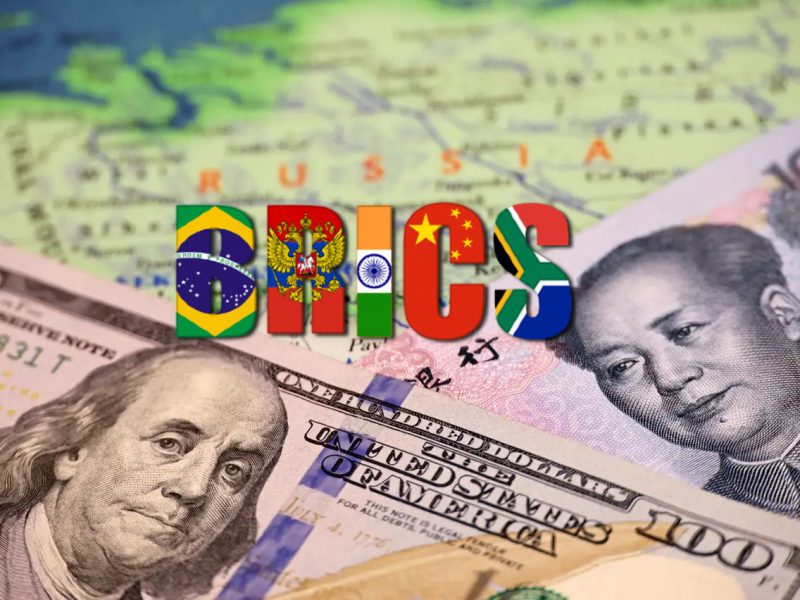The next BRICS summit is scheduled on August 22 to 24 in Johannesburg, South Africa and the bloc is aiming to end Western financial supremacy. The BRICS bloc is looking at multiple options to challenge the U.S. dollar’s global reserve status and uproot the currency. The options include expanding the alliance to BRICS+ by inducting interested countries who want to be a part of the group. Around 22 countries have expressed their interest to join BRICS and take on the U.S. dollar’s hegemony in global trade.
Also Read: 69 Countries Expected To Attend BRICS Summit in August
The development puts the U.S. dollar under pressure as more countries are ready to reject it and look for alternatives. The BRICS expansion could pose a threat to the U.S. dollar as the soon-to-be-joining countries are major oil-producing nations. BRICS is an acronym for Brazil, Russia, India, China, and South Africa.
BRICS Expansion Could Challenge The U.S. Dollar


It is speculated that Saudi Arabia, the United Arab Emirates (UAE), and Argentina could be inducted into the BRICS group. Saudi Arabia and the UAE export millions of barrels of oil to the U.S. and other Western countries every year. Inducting the oil-producing nations could reshape the political world paving the way for a new financial order.
Also Read: BRICS: India Convinces 22 Countries to Trade in Rupee, Ditch US Dollar
An expanded BRICS comes with better financial resources that could be funded by Saudi Arabia. The BRICS bank ‘New Development Bank’ (NDB) needs funding and Saudi is in talks to provide fresh funds to boost the alliance. Therefore, an expansion could make BRICS better equipped with resources to challenge the U.S. dollar.
Also Read: Exclusive: BRICS Will Discuss Use of Local Currencies at August Summit
The sole intention of the BRICS alliance is to break away from the Western-dominated financial order. Therefore, the bloc will pull all its cards to put their native currencies forward and not the U.S. dollar. In addition, if BRICS forces Europe to settle trade in native currencies, the U.S. dollar’s decline could begin.





